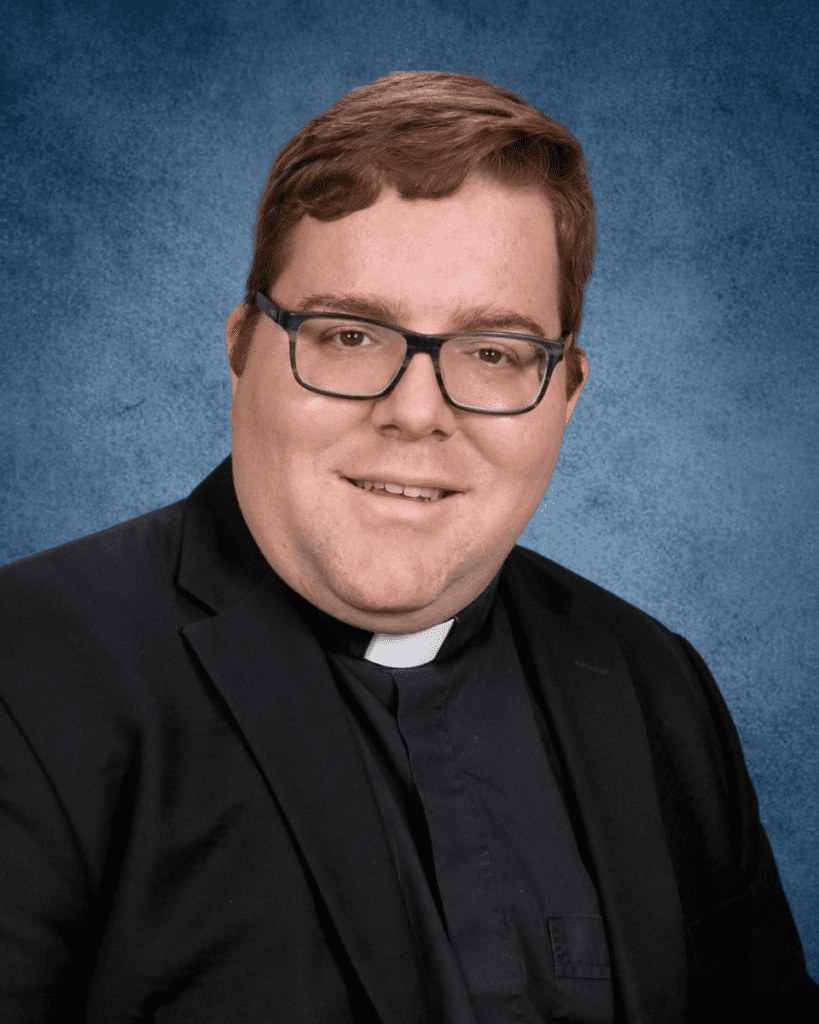My Dear Friends,

Happy Easter, brothers and sisters! Yes, we celebrate this Easter season for an additional three weeks. The joy of the Resurrection simply cannot be contained by space or time! Throughout the Easter season, the Church in her liturgy has been offering us readings from the Acts of the Apostles. This essential book, which is really a simple continuation of the Gospel of Luke written by the same author, tells the story of the early Church in the days after the Resurrection of Jesus and the descent of the Holy Spirit at Pentecost. It tells the incredible human story of the Apostles, the apostolic men, and the faithful women who took the new Gospel of Jesus Christ to the ends of the world. This was in a time before the Scriptures were compiled, before the institutional reach of the Church, and before the Faith was even a blip on the Roman radar. Without them, we are not here today.
The theological thrust of the Acts of the Apostles is the movement of the Gospel of Jesus Christ, and thus the Church, from its birthplace in Jerusalem to the center of the known world in Rome. The book begins with the Ascension of Jesus and the descent of the Holy Spirit at Pentecost in Jerusalem. It ends with Paul in Rome awaiting his trial and execution. The two main protagonists of Acts are the two apostolic pillars of the Roman Church: Peter and Paul. All of the details in between show the human realities of evangelization, the work of the Holy Spirit in the Church, and the true lengths to which people of Faith can go in their love of Jesus Christ.
The first reading on this 5th Sunday of Easter offers us an incredible glimpse into a pivotal moment in Acts. Saul had encountered the risen Lord on the road to Damascus, had converted, been blinded, and brought by Ananias to the Christian community in Damascus. Yet all of that was simply only a rumor for the Church in Jerusalem. They knew who Saul had been. They knew of his compliance in the murder of St. Stephen. They had personally suffered at his hands and for all they knew, Saul could be leading them into a trap to persecute them further. Then Barnabas stepped in.
Barnabas, “took charge of him and brought him to the Apostles, and he reported to them how he had seen the Lord, and that he had spoken to him, and how in Damascus he had spoken out boldly in the name of Jesus.” At great personal risk, Barnabas stuck his neck out for Saul. The Apostles saw that and trusted Barnabas. Once again, the mercy of God, to which all Christians are bound, won the day. The rest is history. The first half of the Acts of the Apostles is focused on Peter until the climactic midpoint of the book at the Council of Jerusalem. Then, Paul takes over. Paul was the unstoppable force, the ever-firing evangelistic motor who took the Good News of Jesus Christ to the ends of the earth, to Rome, the capital of the ancient world.
These events in the Acts of the Apostles are not merely fantastic retellings of the heroes of our Faith. They are accounts of the flesh and blood men and women who saw Jesus themselves or who received eyewitness testimony from others. They are the stories of those who built the Church with nothing more than their abiding Faith in the Resurrection and their trust in the Holy Spirit and in each other. They are our fathers and mothers, our sisters and brothers in this Catholic Church which they established, and which still stands today. Seek their heavenly intercession. They still look out for us on our spiritual journeys. Pay close attention to the readings from the Acts of the Apostles heard during the remainder of this Easter season. They remind us how we came to be, and they still reveal to us what it means to be a follower of Jesus Christ even today.
God bless you all,
Fr Andrew

